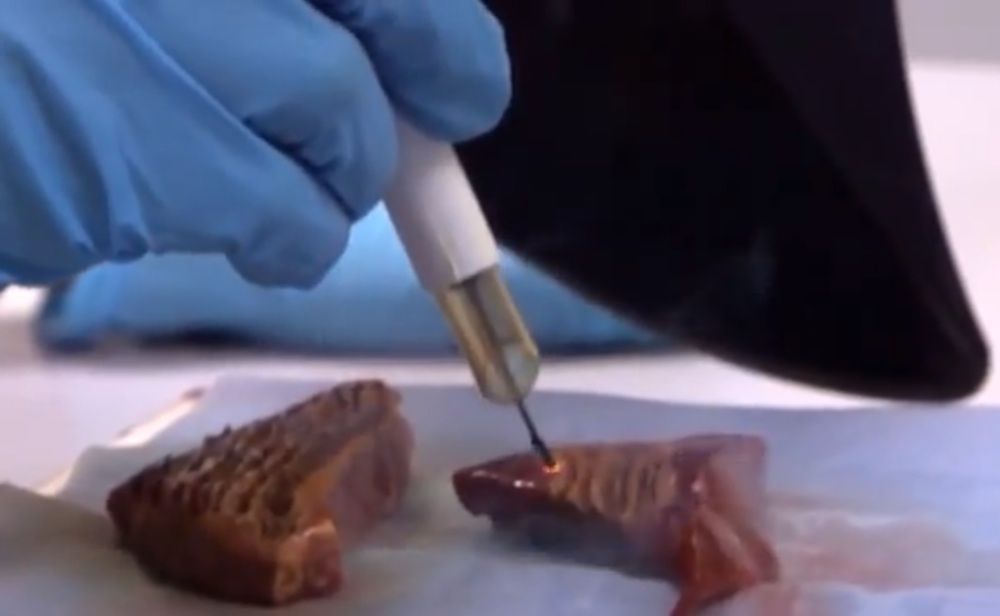Surgical Knife May Sniff Out Cancer

When a surgeon is removing a tumor, it's often hard to tell where the patient's cancer ends and the normal tissue begins – which is important in ensuring that all of the cancer is removed. Now, an experimental surgical knife aims to detect cancerous tissue as it cuts.
Developed by researchers at Imperial College London, the intelligent knife, or "iKnife," sniffs out cancer cells in the smoke given off by tissue during electrosurgery, which uses an electrical current to rapidly heat and cut through the tissue. Surgeons could use the iKnife to determine whether the cells are healthy or cancerous in a matter of seconds, its creators say.
Chemists have known for several years that lipids, the fatty molecules inside cell membranes, can be used to identify cancerous tumors. But the traditional way of detecting them requires removing the cancerous tissue and analyzing it using a mass spectrometer, a device that measures the mass and structure of its component molecules.
To speed up the process, chemist Zoltán Takáts and his colleagues developed a surgical knife that can analyze lipids in the smoke given off when surgeons cut or cauterize blood vessels. In animal studies, the researchers showed that analyzing the smoke in a mass spectrometer reveals different tissue types. [Bionic Humans: Top 10 Technologies]
In a test of the device, the researchers analyzed tissue samples from 302 patients in the lab, creating a reference collection of 1,624 cancerous tissue types and 1,309 noncancerous types. Then they tested the iKnife in the operating room in 81 cancer surgeries.
In all of the patients, the iKnife distinguished between cancerous and noncancerous tissue types as well as postoperative analysis did, the scientists reported in July in the journal Science Translational Medicine. And the iKnife identification took only one to three seconds (by contrast, conventional methods can take up to 30 minutes).
"The technology works well; however, surgeons cannot make decisions based on the mass spectrometry data yet," Takáts told LiveScience.
Sign up for the Live Science daily newsletter now
Get the world’s most fascinating discoveries delivered straight to your inbox.
The iKnife gives surgeons real-time diagnostic information about the tumor, including whether the tumor is growing at the site where it began or has metastasized. The speedy readout would help surgeons work more efficiently, minimizing the time a patient spends under anesthesia.
The team plans to start a clinical trial of the iKnife next year. The researchers are also developing a version of the iKnife called the "iForceps" for brain surgery and the "iEndoscope" for colon surgery.
Follow Tanya Lewis on Twitter and Google+. Follow us @livescience, Facebook & Google+. Original article on LiveScience.



